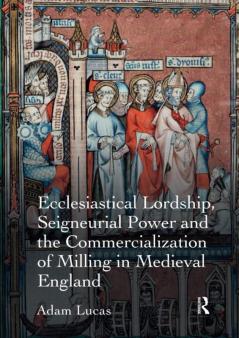English
Paperback
₹4742
₹5450
12.99% OFF
(All inclusive*)
Delivery Options
Please enter pincode to check delivery time.
*COD & Shipping Charges may apply on certain items.
Review final details at checkout.
Looking to place a bulk order? SUBMIT DETAILS
About The Book
Description
Author
Shoutouts
This is the first detailed study of the role of the Church in the commercialization of milling in medieval England. Focusing on the period from the late eleventh to the mid sixteenth centuries it examines the estate management practices of more than thirty English religious houses founded by the Benedictines Cistercians Augustinians and other minor orders with an emphasis on the role played by mills and milling in the establishment and development of a range of different sized episcopal and conventual foundations. Contrary to the views espoused by a number of prominent historians of technology since the 1930s the book demonstrates that patterns of mill acquisition innovation and exploitation were shaped not only by the size wealth and distribution of a house’s estates but also by environmental and demographic factors changing cultural attitudes and legal conventions prevailing and emergent technical traditions the personal relations of a house with its patrons tenants servants and neighbours and the entrepreneurial and administrative flair of bishops abbots priors and other ecclesiastical officials.
Delivery Options
Please enter pincode to check delivery time.
*COD & Shipping Charges may apply on certain items.
Review final details at checkout.
Details
ISBN 13
9780367600334
Publication Date
-30-06-2020
Pages
-436
Weight
-722 grams
Dimensions
-174x246x23 mm











